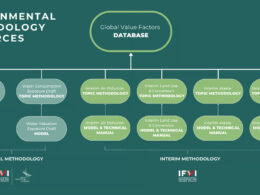Cryptocurrency (Bitcoin) mining saw global energy consumption increase nearly 34-fold from 2015 to 2023, reaching an estimated 121 TWh, while the electricity consumption of 13 major data centre operators more than doubled between 2018 and 2022. This data highlights the urgent need to address the energy and water footprints of these technologies.
Revealed by the UN Trade and Development (UNCTAD) Digital Economy Report 2024, the findings highlight the significant environmental impact of the global digital sector. The report details that while digitalisation propels global economic growth and provides unique opportunities for developing countries, its environmental consequences are becoming increasingly severe.
The Digital Economy Report 2024 emphasises the need for environmentally sustainable and inclusive digitalization strategies. The report stresses the urgent need to address the environmental costs of rapid digital transformation, which include the depletion of finite raw materials for digital and low-carbon technologies, escalating water and energy consumption, and the growing problem of digitalization-related waste.
The report shows that the environmental footprint of the information and communications technology (ICT) sector is significant, as the lifecycle of digital devices consumes vast amounts of transition minerals, energy, and water, substantially contributing to greenhouse gas emissions and pollution.
In 2020, the ICT sector’s CO2 equivalent emissions were estimated between 0.69 and 1.6 gigatons, accounting for 1.5–3.2% of global greenhouse gas emissions, a figure expected to rise with the growth of the digital economy.
E-commerce has also surged, with the number of online shoppers growing from fewer than 100 million in 2000 to 2.3 billion in 2021. This increase has led to a 30% rise in digital-related waste from 2010 to 2022, reaching 10.5 million tons globally. Inadequate handling and disposal of digital waste exacerbate environmental inequalities, disproportionately impacting developing countries.
UN Trade and Development Secretary-General Rebeca Grynspan underlined the need for a balanced approach and said “We must harness the power of digitalisation to advance inclusive and sustainable development while mitigating its negative environmental impacts. This requires a shift towards a circular digital economy, characterized by responsible consumption and production, renewable energy use and comprehensive e-waste management. The digital economy’s growing environmental impact can be reversed”.
UNCTAD calls on the international community to implement comprehensive policies that foster a circular digital economy, minimise environmental impacts, and bridge the digital divide. Immediate and coordinated efforts from governments, industry leaders, and civil society are essential for sustainable and inclusive digital development.
The report emphasises the need to integrate digital and environmental policies, calling for urgent and bold action to ensure an equitable and environmentally responsible digital economy. This approach aims to allow countries to benefit from the opportunities the digital economy presents while safeguarding the interests and well-being of current and future generations.














